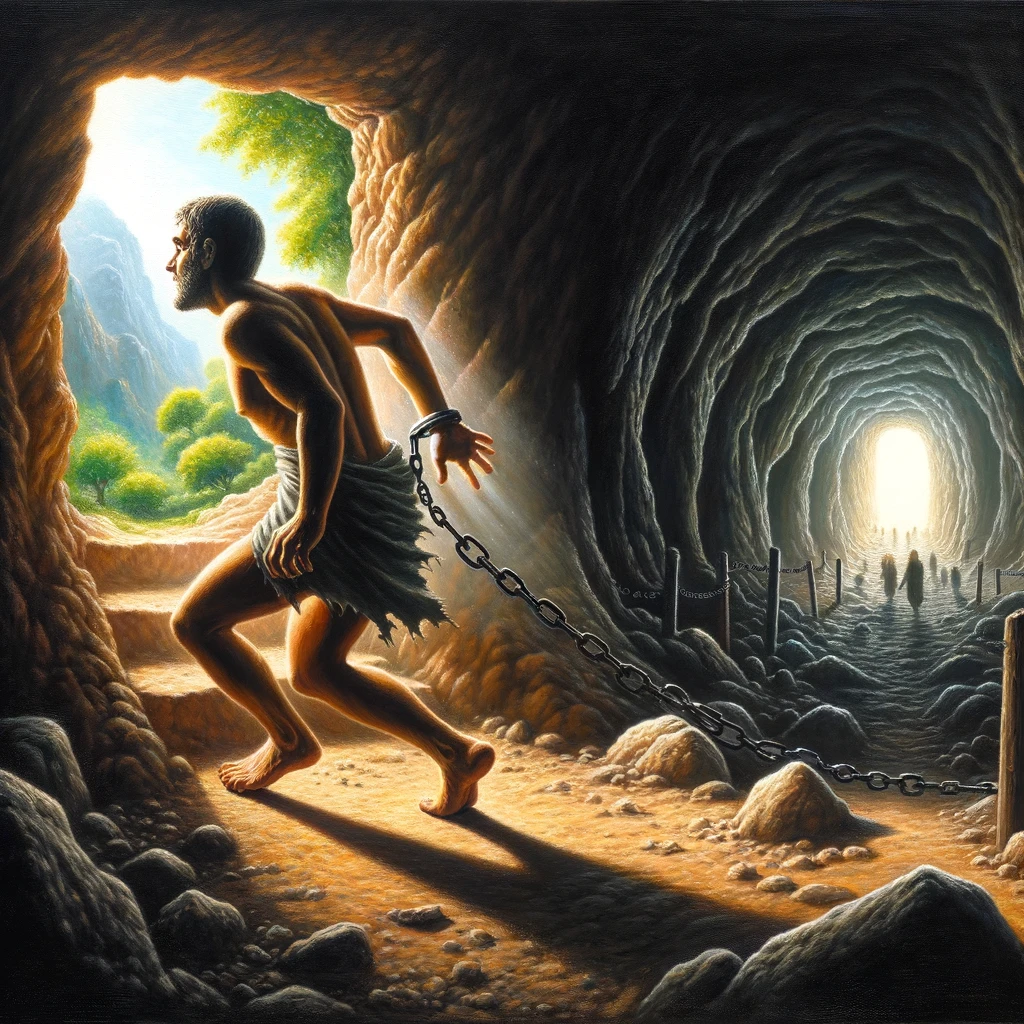Plato was Socrates’s most famous student and was deeply influenced by his views of how the love of truth fits in with the good life. In this class session, we will introduce you to Plato’s most famous dialogue — The Republic — which features Socrates in his questioning element. We’ll read the famous Allegory of the Cave and discuss different views we might have to “converting” others in a philosophical debate. We’ll also consider ancient debates about sophistry and relativism, and contemporary versions of some of these same debates.
We have three main learning goals for this day. You will:
- Understand how Plato’s vision of the truth contrasts with the sophists
- Be able to compare and contrast the Socratic elenchus to Plato’s vision of philosophical conversion in the cave allegory
- Debate whether we have moral obligations to “return to the cave” as Plato suggests at the end of the dialogue.
Read This:
Primary: Interactive Essay: Plato’s “Allegory of the Cave” (from BSU’S GGL Course)
Secondary: What caves are we in, and how can we escape them?
Do This:
Required:
- Make sure you’ve completed the “How We Argue” (ThinkerAnalytix) course up through lesson 7 by today’s class.
- After you’ve finished today’s reading, make sure you complete the reading quiz, which you can access through your section’s Canvas page.
Suggested: In the last class period, we considered the importance of valuing (and seeking) the truth. But today Plato claims that we actually need to go further: we need to love the truth? What would this look like in everyday life? Is this something you embody, or seek to embody?























